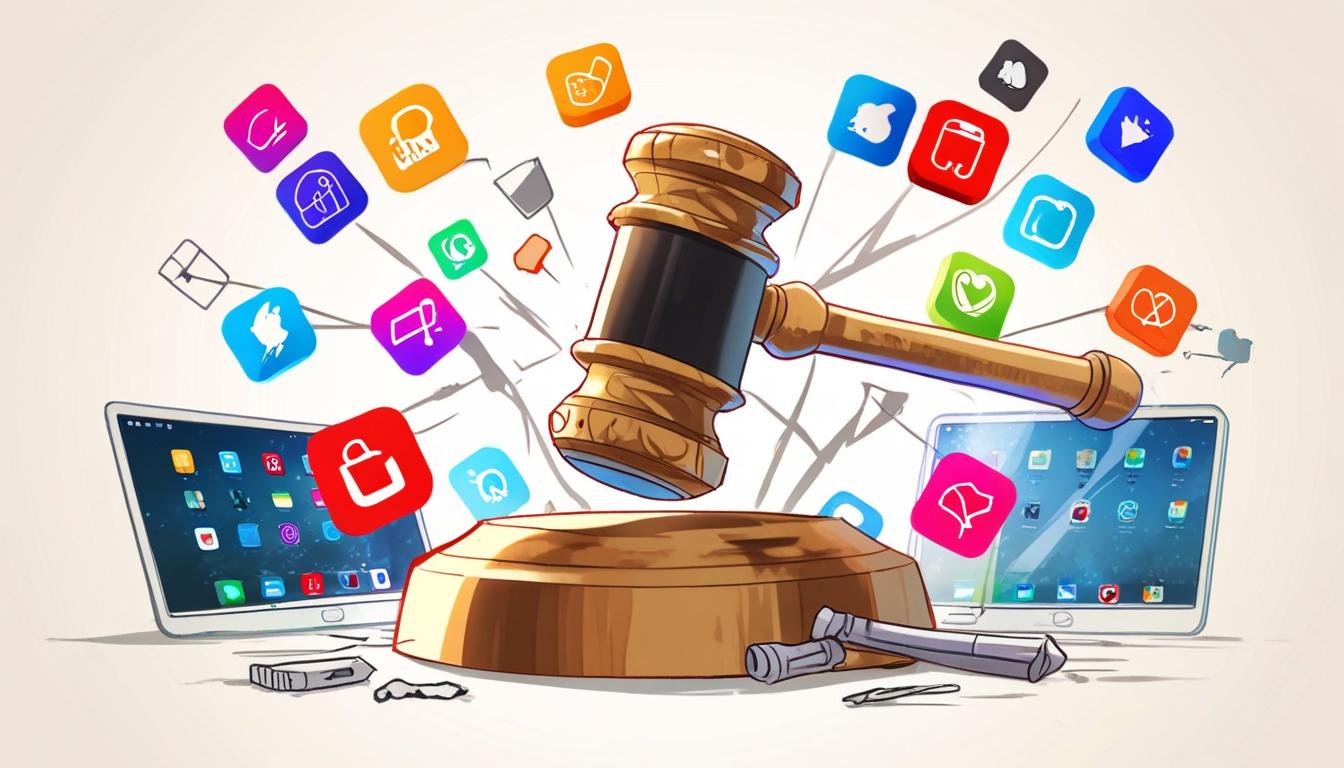In a significant development regarding Apple Inc.'s App Store operations, US District Court Judge Yvonne Gonzalez Rogers has issued stark criticisms following the company's response to an injunction resulting from its protracted legal battle with Epic Games. This case, which centres on competition and commission practices within the App Store, has culminated in a ruling that could reshape the landscape for app developers and consumers alike.
The backdrop to this ruling is Apple's earlier legal dispute with Epic Games, the developer of the popular game Fortnite. After their case concluded last year, Epic's CEO Tim Sweeney expressed disappointment on social media, stating, "The court battle to open iOS to competing stores and payments is lost in the United States. A sad outcome for all developers." Following the ruling, Apple implemented a new pricing framework, now charging a 27% commission on apps opting to manage their own billing. Moreover, developers are required to apply for a special tool allowing them to include buttons directing users to external payment systems.
In her ruling, Judge Gonzalez Rogers described Apple’s actions as calculated and anticompetitive. She alleged that Apple had deliberately chosen options that would maintain and potentially enhance its revenue from app commissions. Notably, the judge referred to internal communications that contradicted Apple’s assertions in court. She highlighted that Vice-President of Finance Alex Roman lied under oath, and noted disagreements within Apple’s senior management regarding compliance with the injunction. "Tim Cook ignored [Phillip Schiller's] advice and instead allowed Chief Financial Officer Luca Maestri and his finance team to convince him otherwise," commented Gonzalez Rogers, underscoring internal fractures regarding Apple’s approach.
In a pointed section of the ruling, the judge emphasised that prior to the injunction, Apple had not allowed external purchases and thus did not collect commission on them. The implications of these findings have led to a stark conclusion about Apple’s intent: it willfully chose to disregard the court's order while creating new barriers that maintained its revenue stream.
The ruling concludes with a firm directive to Apple, stating, "Effective immediately Apple will no longer impede developers’ ability to communicate with users nor will they levy or impose a new commission on off-app purchases." Gonzalez Rogers firmly stated that this injunction is non-negotiable, leaving no room for Apple to sidestep compliance.
As both parties consider their next steps, including potential appeals from Apple, the ramifications of this decision could be profound. If upheld, it may pave the way for a more open App Store, allowing developers greater flexibility while simultaneously addressing concerns around the so-called "Apple tax."
In anticipation of changes, Epic has announced plans to reintegrate Fortnite into the US App Store by next week, signalling a willingness to collaborate with Apple under this newly established framework. Sweeney's statement includes a proposition for a broader agreement, suggesting that if Apple expands the court's non-commission framework globally, Epic would cease ongoing and future litigation on the matter.
This ruling marks a pivotal moment in the ongoing scrutiny of app store policies and practices. As the dialogue evolves, the balance between consumer interests, developer rights, and corporate practices continues to dominate discussions about the future of digital marketplaces. The Tech Radar is reporting that Apple's response in the coming days and the subsequent actions from Epic will be closely monitored, as they may significantly influence the operating environment for app developers and the millions of users reliant on the App Store.
Source: Noah Wire Services
